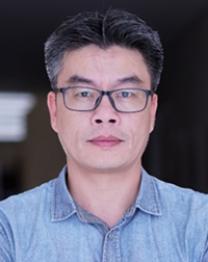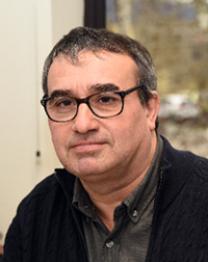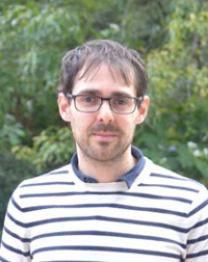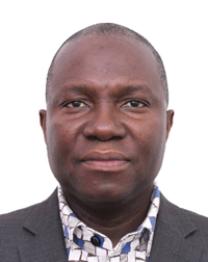Panelists will present country-specific case studies covering a range of aquaculture systems-including tilapia, shrimp, mussels, algae, and scallops-examining their economic, social, and environmental performance.
With diverse regional contexts and production systems, the session offers rich insights into the trade-offs, innovations, and challenges facing sustainable aquaculture in low- and middle-income countries.
A moderated discussion and audience Q&A will encourage dialogue on how evidence-based tools and collaborative research can inform policy and promote resilient blue food systems globally.
Speakers:
Panelists:
- Mr. Pham Khanh Nam, Associate Professor of Economics, University of Economics Ho Chi Minh City (UEH), Vietnam, Director of the Environment for Development Centre, Vietnam (EfD-Vietnam)
- Mr. Carlos Alberto Chávez Rebolledo, Professor of Economics, Universidad de Talca, Chile. Associate researcher Interdisciplinary Center for Aquaculture Research (INCAR)
- Mr. Jorge Marco Renau, Assistant Professor, Department of Economics, University of Girona, Spain
- Mr. Wisdom Akpalu, Director, EfD Ghana and Chairperson, Governing Council of the Fisheries Commission, Ghana
- Mr. Ho Quoc Thong, Lecturer, School of economics, University of Economics Ho Chi Minh City (UEH), Research Fellow and Policy Engagement Specialist, Environment for Development (EfD), Vietnam
Dr. Nam Khanh Pham is an Associate Professor of Economics at the University of Economics Ho Chi Minh City (UEH), Vietnam.
He currently serves as Rector of the College of Economics, Law and Government at UEH and as Director of the Environment for Development Center in Vietnam (EfD-Vietnam), the coordinating institution of the BlueRforD collaborative. His research centers on environmental economics and sustainable development, with a strong focus on the green transition and ocean-related resilience in emerging economies.
Dr. Nam has led and contributed to interdisciplinary initiatives addressing climate vulnerability, inclusive growth, and the development of integrated policy tools. He actively collaborates with national and international partners to support science-based policymaking for sustainability in Vietnam and Southeast Asia. His work contributes to frameworks that align environmental, social, and economic goals—particularly in the context of coastal and marine sustainability.
Carlos Chávez is Professor of Economics at Universidad de Talca, Chile, where he teaches introductory and advanced microeconomics, and advanced environmental and resource economics.
His research focuses on marine resource economics and environmental economics. Carlos is a senior research fellow at the Research Nucleus on Environmental and Natural Resource Economics (NENRE), an Environment for Development (EfD) center in Chile. He is also an associated researcher at the Interdisciplinary Center for Aquaculture Research (INCAR), an interdisciplinary research center for sustainable aquaculture in Chile.
He is Co-Editor of Environment and Development Economics, Associated Editor of Aquaculture Economics & Management, member of the National Council for Sustainability and Climate Change in Chile, and an elected member of the Executive Committee of The International Institute of Fisheries Economics & Trade (IIFET).
Jorge Marco Renau is an Assistant Professor at the Department of Economics at University of Girona, Spain. He holds a PhD in Economics from University of Girona, Spain (2018).
Jorge Marco studied Environmental Sciences at University of Valencia (UVEG, Spain) and Mathematical Modeling at University Autonomous of Barcelona (UAB, Spain). He is member of the research group GRAE at the University of Girona. His research interests are Environmental and Resource Economics, Social Economics, Public Policy, and Evolutionary Economics.
Wisdom Akpalu is the Chairperson of the Governing Council of Ghana's Fisheries Commission. He is a professor at the Ghana Institute of Management and Public Administration (GIMPA) and the director of the Environment for Development initiative in Ghana (ENRRI-EfD Ghana), which Sida funds.
In addition, he is the President of the EfD Africa Hub Board of Directors, the Vice-President of the African Society of Ecological Economists, and an executive member of the International Institute of Fisheries Economics and Trade (IIFET), representing the African Region. Before joining GIMPA, he was an Associate Professor of Economics and the Chair of the Economics Department at the State University of New York, Farmingdale, NY, and a Research Fellow at the United Nations University's World Institute for Development Economics Research (UNU-WIDER).
He is an avid researcher interested in marine ecosystems' biophysical and economic dynamics. He has consulted extensively with several international organizations.
Dr. Thong Q. Ho is an applied economist, lecturer, and coordinator of Blue Resources for Development (BlueRforD) at School of Economics; Economy & Environment Partnership for Southeast Asia (EEPSEA); University of Economics Ho Chi Minh City (UEH).
His recent work addresses key environmental and climate change challenges, with an emphasis on measuring performance, efficiency, and pro-environmental behavior. Dr. Thong has led several randomized controlled trials and field experiments to study decision-making, social capital, and pro-environmental behavior.
Through his interdisciplinary work, Dr. Ho contributes to a deeper understanding of how economic behavior interacts with sustainability goals, particularly in rural and coastal contexts. His research supports evidence-based policymaking and fosters collaboration across academic, policy, and practitioner communities.





